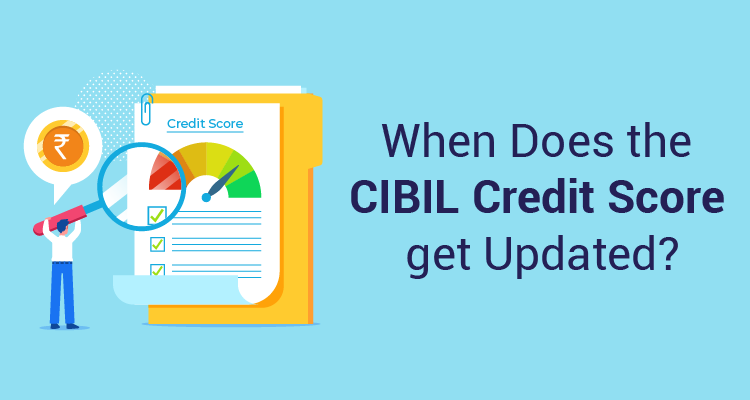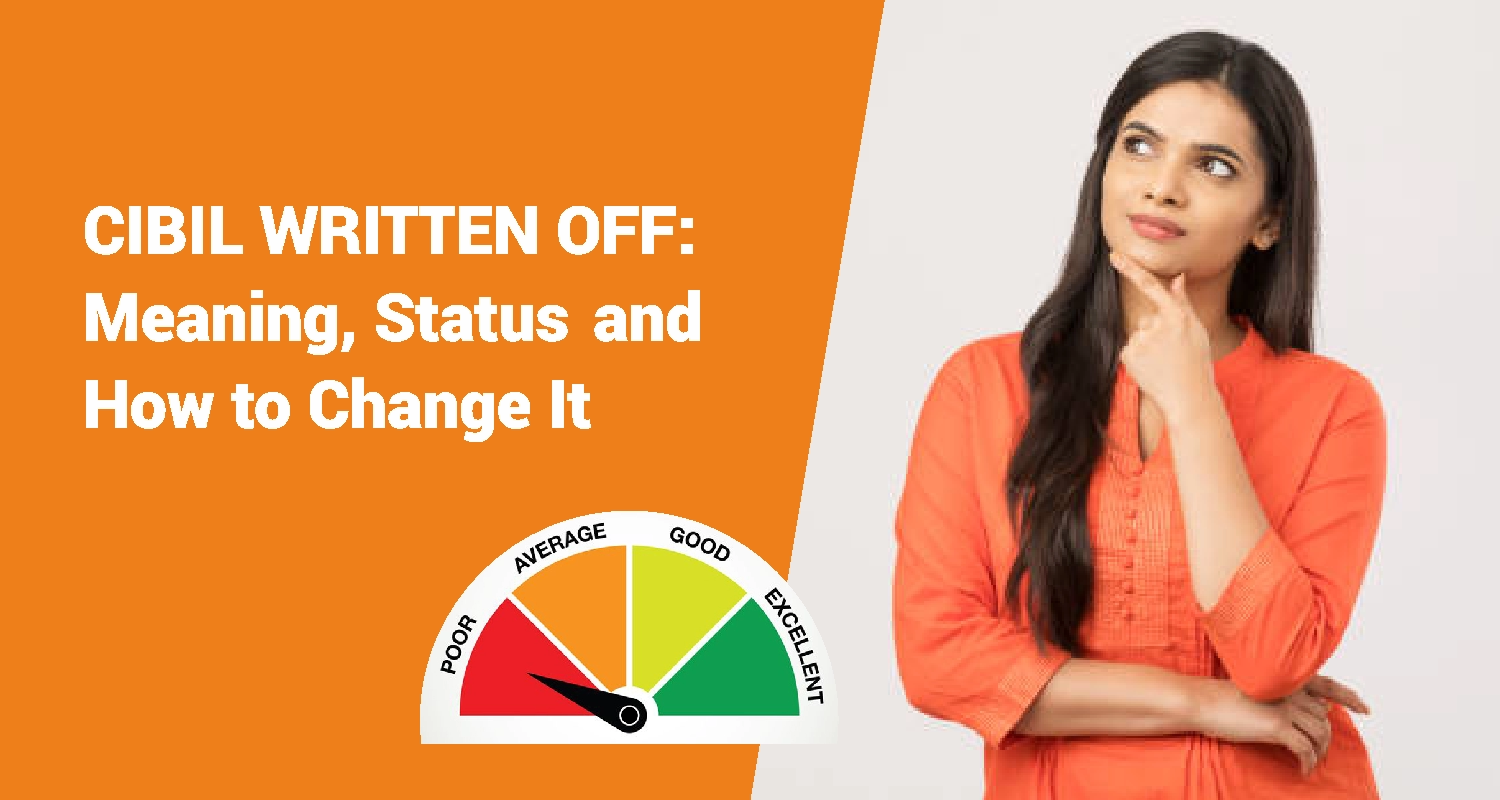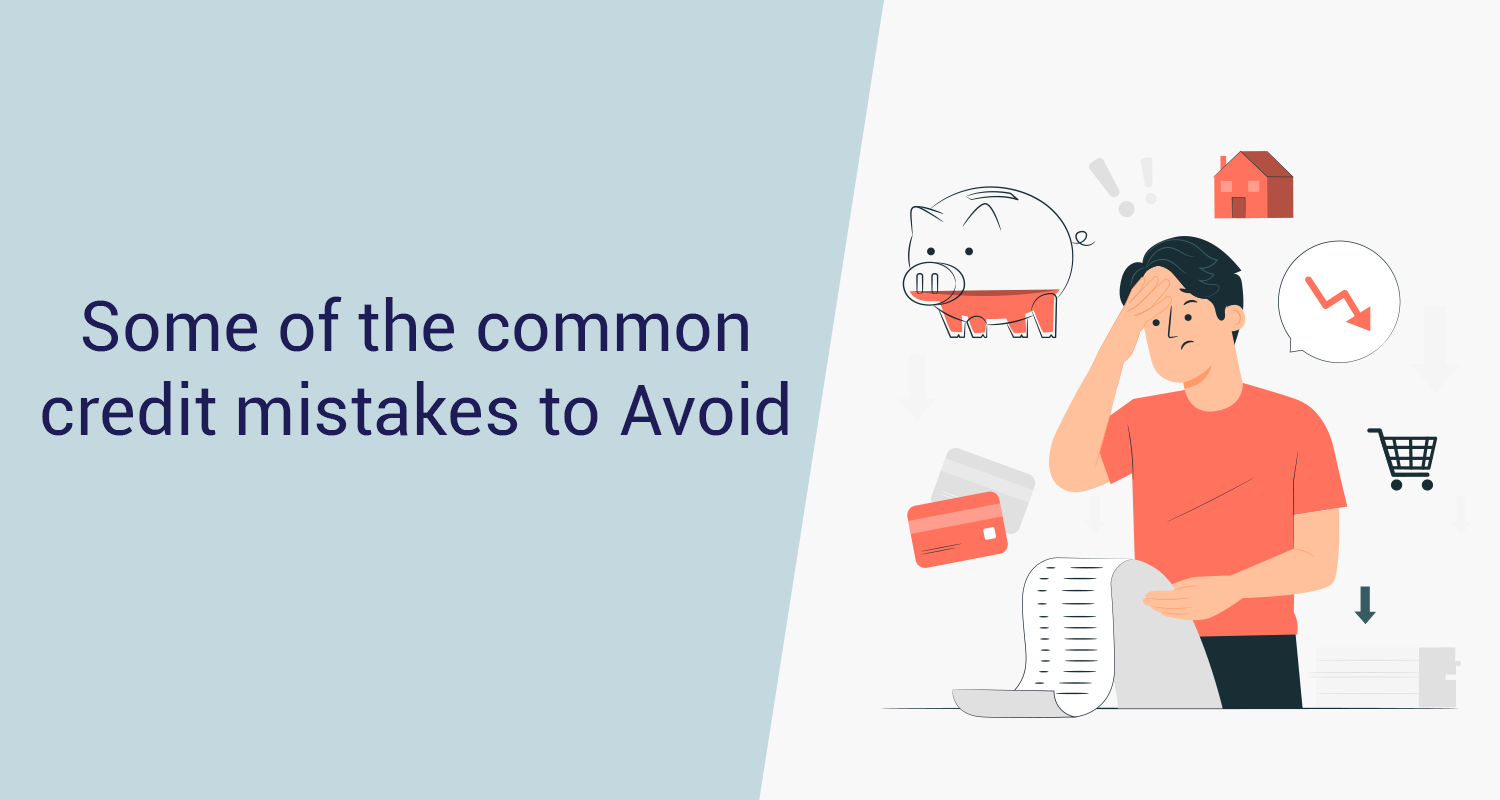CIBIL Credit Score Updates: How Often CIBIL Score is Updated

Having a good credit score is crucial for anyone who wishes to access financial services and goods in today's economic climate. It reflects how reliable and trustworthy a person is when repaying debts and managing finances. One of India's most popular and widely used credit bureaus is CIBIL (Credit Information Bureau (India) Limited), which assigns a numerical value to a person's credit history and behaviour. Knowing how and when the CIBIL credit score changes can help individuals improve and maintain their credit reputation. Let's explore the significance of a good CIBIL credit score and the update frequency and offer some tips on what to do if your score stays the same as expected.
The Importance Of A Good CIBIL Credit Score
Lenders and financial institutions heavily rely on this score when assessing loan applications. A high credit score indicates that you are a trustworthy borrower with a track record of on-time payments, modest credit usage, and stable credit history. As a result, applicants with high credit scores are more likely to receive favourable terms and interest rates on loans and credit cards.
Apart from obtaining credit, a good credit score can also impact other aspects of your financial life. Landlords, insurers, and potential employers may use credit scores to measure your financial reliability and trustworthiness. A strong credit score reflects a sense of financial discipline and may open doors to better rental opportunities, insurance premiums, and job prospects.
How Often Does The CIBIL Credit Score Get Updated?
One crucial factor is how frequently your CIBIL credit score is updated. Many people might initially believe their credit score is updated in real time. This is not the case, though. Upgrading the CIBIL credit score might take between 7 and 10 days, and it usually happens once every month.
During this monthly update from various lenders and financial organisations, the credit bureaus collect data on consumers' credit actions, such as loan repayment, credit card use, and any new credit inquiries. The credit bureaus recalculate each person's credit scores in light of this information.
Two Common Situations Can Arise For Updation.
Repayment Made:
If you've recently made a repayment towards your credit card or debt. Since credit bureaus typically refresh their reports every month, you'll need to be patient and keep track of your CIBIL report to observe any changes in your score.Dispute Raised:
In the event of errors or discrepancies on your credit report, you may choose to raise a dispute with CIBIL. However, you should be prepared to wait approximately 90 days (equivalent to 3 months) for the conflict to be resolved. After the resolution process, your CIBIL credit score will be updated accordingly.It's essential to understand that CIBIL credit scores are influenced not just by individual repayments but also by your overall financial activities. As a result, the exact timing of your score update may vary based on your credit behaviour and the reporting practices of lenders to the credit agency.
What If The Score Is Not Getting Updated?
It can be concerning if your CIBIL credit score needs to update as expected. The following are potential causes and solutions:1. Limited Credit Activity: The credit bureau may need more information to update your score if you have had little or no recent credit activity. In such circumstances, having an active credit history and responsible credit use is essential.
2. Delayed Reporting: Lenders can postpone informing the credit bureaus of credit information. You can contact the appropriate lender and ask about the reporting status if you think recent credit activity is not yet shown in your credit report.
3. Errors in your Credit Report: Inaccuracies in your credit report could lead to incorrect credit scores. Regularly monitor your credit report for discrepancies and dispute errors with the credit bureau to rectify them.
4. Identity Theft or Fraud: If you suspect any fraudulent activity on your credit report, such as accounts opened without your knowledge, report it immediately to the credit bureau for investigation.
In conclusion, understanding when the CIBIL credit score updates and its importance is crucial for maintaining a healthy financial profile. A good credit score opens numerous financial opportunities and can positively impact your life. Remember that the CIBIL credit score typically updates every month, but if you encounter issues with updating, take proactive steps to resolve them.
Many financial institutions like IIFL Finance lets you check your credit score free of cost, and that too within a few minutes. Regularly monitoring your credit report and practising responsible credit behaviour will help you build and sustain a good credit score, empowering you to achieve your financial goals confidently.
Disclaimer: The information contained in this post is for general information purposes only. IIFL Finance Limited (including its associates and affiliates) ("the Company") assumes no liability or responsibility for any errors or omissions in the contents of this post and under no circumstances shall the Company be liable for any damage, loss, injury or disappointment etc. suffered by any reader. All information in this post is provided "as is", with no guarantee of completeness, accuracy, timeliness or of the results etc. obtained from the use of this information, and without warranty of any kind, express or implied, including, but not limited to warranties of performance, merchantability and fitness for a particular purpose. Given the changing nature of laws, rules and regulations, there may be delays, omissions or inaccuracies in the information contained in this post. The information on this post is provided with the understanding that the Company is not herein engaged in rendering legal, accounting, tax, or other professional advice and services. As such, it should not be used as a substitute for consultation with professional accounting, tax, legal or other competent advisers. This post may contain views and opinions which are those of the authors and do not necessarily reflect the official policy or position of any other agency or organization. This post may also contain links to external websites that are not provided or maintained by or in any way affiliated with the Company and the Company does not guarantee the accuracy, relevance, timeliness, or completeness of any information on these external websites. Any/ all (Gold/ Personal/ Business) loan product specifications and information that maybe stated in this post are subject to change from time to time, readers are advised to reach out to the Company for current specifications of the said (Gold/ Personal/ Business) loan.



